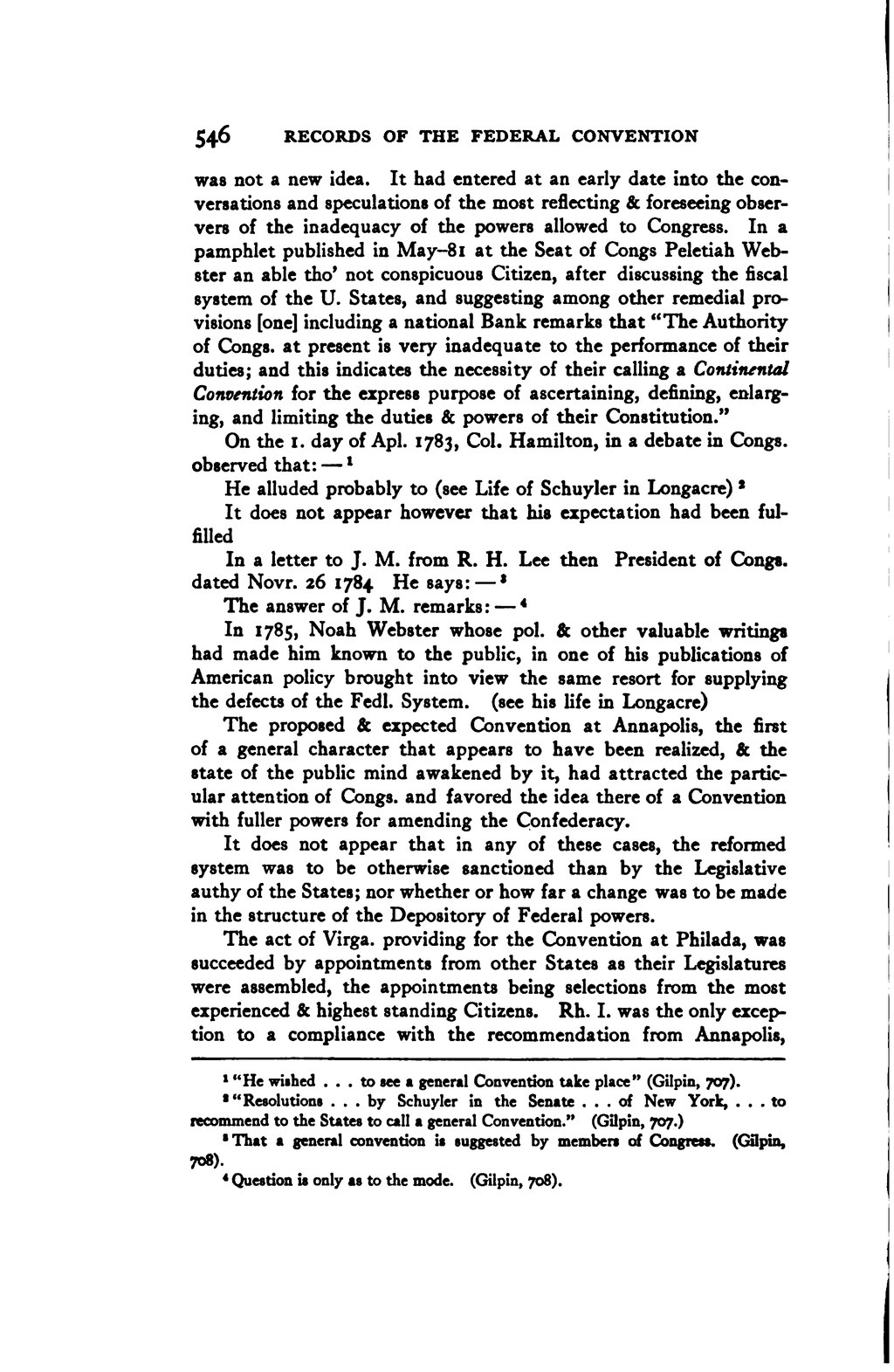was not a new idea. It had entered at an early date into the conversations and speculations of the most reflecting & foreseeing observers of the inadequacy of the powers allowed to Congress. In a pamphlet published in May–81 at the Seat of Congs Peletiah Webster an able tho’ not conspicuous Citizen, after discussing the fiscal system of the U. States, and suggesting among other remedial provisions [one] including a national Bank remarks that “The Authority of Congs. at present is very inadequate to the performance of their duties; and this indicates the necessity of their calling a Continental Convention for the express purpose of ascertaining, defining, enlarging, and limiting the duties & powers of their Constitution.”
On the 1. day of Apl. 1783, Col. Hamilton, in a debate in Congs. observed that:—[1]
He alluded probably to (see Life of Schuyler in Longacre)[2]
It does not appear however that his expectation had been fulfilled
In a letter to J.M. from R.H. Lee then President of Congs. dated Novr. 26 1784 He says:—[3]
The answer of J.M. remarks:—[4]
In 1785, Noah Webster whose pol. & other valuable writings had made him known to the public, in one of his publications of American policy brought into view the same resort for supplying the defects of the Fedl. System. (see his life in Longacre)
The proposed & expected Convention at Annapolis, the first of a general character that appears to have been realized, & the state of the public mind awakened by it, had attracted the particular attention of Congs. and favored the idea there of a Convention with fuller powers for amending the Confederacy.
It does not appear that in any of these cases, the reformed system was to be otherwise sanctioned than by the Legislative authy of the States; nor whether or how far a change was to be made in the structure of the Depository of Federal powers.
The act of Virga. providing for the Convention at Philada, was succeeded by appointments from other States as their Legislatures were assembled, the appointments being selections from the most experienced & highest standing Citizens. Rh. I. was the only exception to a compliance with the recommendation from Annapolis,
- ↑ “He wished … to see a general Convention take place” (Gilpin, 707).
- ↑ “Resolutions … by Schuyler in the Senate … of New York, … to recommend to the States to call a general Convention.” (Gilpin, 707.)
- ↑ That a general convention is suggested by members of Congress. (Gilpin, 708).
- ↑ Question is only as to the mode. (Gilpin, 708).
